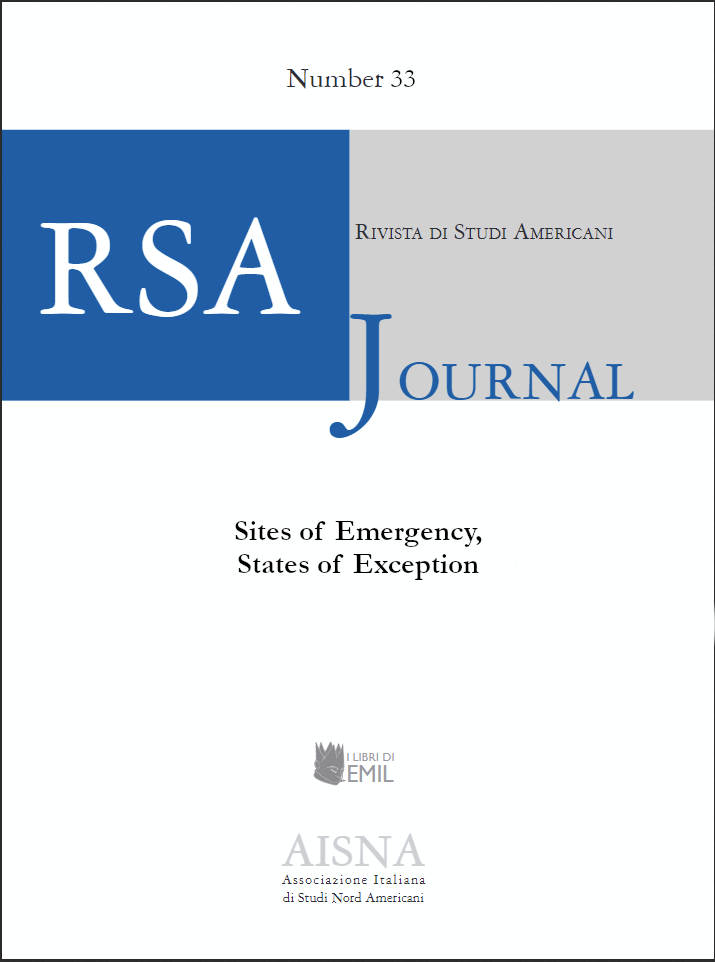“The Least Worst Place”
Guantánamo in the US “War on Terror”
DOI:
https://doi.org/10.13135/1592-4467/8423Keywords:
War on Terror, Guantánamo, jurisprudenceAbstract
“The least worst place” in the world to hold “unlawful combatants,” in Secretary of Defence Donald Rumsfeld’s words, the military detention camp within the US naval base at Guantánamo Bay stands out as the epitome for the primacy of national security over due process, habeas corpus, and the safeguard of human rights in Washington’s “War on Terror.” Since late 2001, in the eyes of the federal administration, GITMO has enjoyed the double benefit of being under US jurisdiction but in a foreign country, which has enabled Washington’s personnel to be in control but has also allegedly exempted them from applying US laws. As such, though not without precedents, the existence of GITMO, along with the related indefinite confinement without trial and resort to torture of prisoners, points to the blatant inconsistency between, on the one hand, the US longing for global leadership in the promotion of freedom and the enforcement of the rule of law and, on the other, Washington’s failure to protect these values in times of national emergency. Drawing mainly upon the rulings by the US Supreme Court on previous and coeval cases, this article reconstructs how jurisprudence initially supported Washington’s arrogant and go-it-alone style in waging the “War on Terror” by crushing the Guantánamo inmates’ most basic rights, too. It also highlights how political expediency has subsequently interfered with the slow inroads of due process and habeas corpus into GITMO.
Downloads
Published
Issue
Section
License
RSAJournal will apply a CC BY 4.0 license to all its contributions starting with issue 37 (2026). Previous issues are licensed under a CC BY-NC-ND licence.





